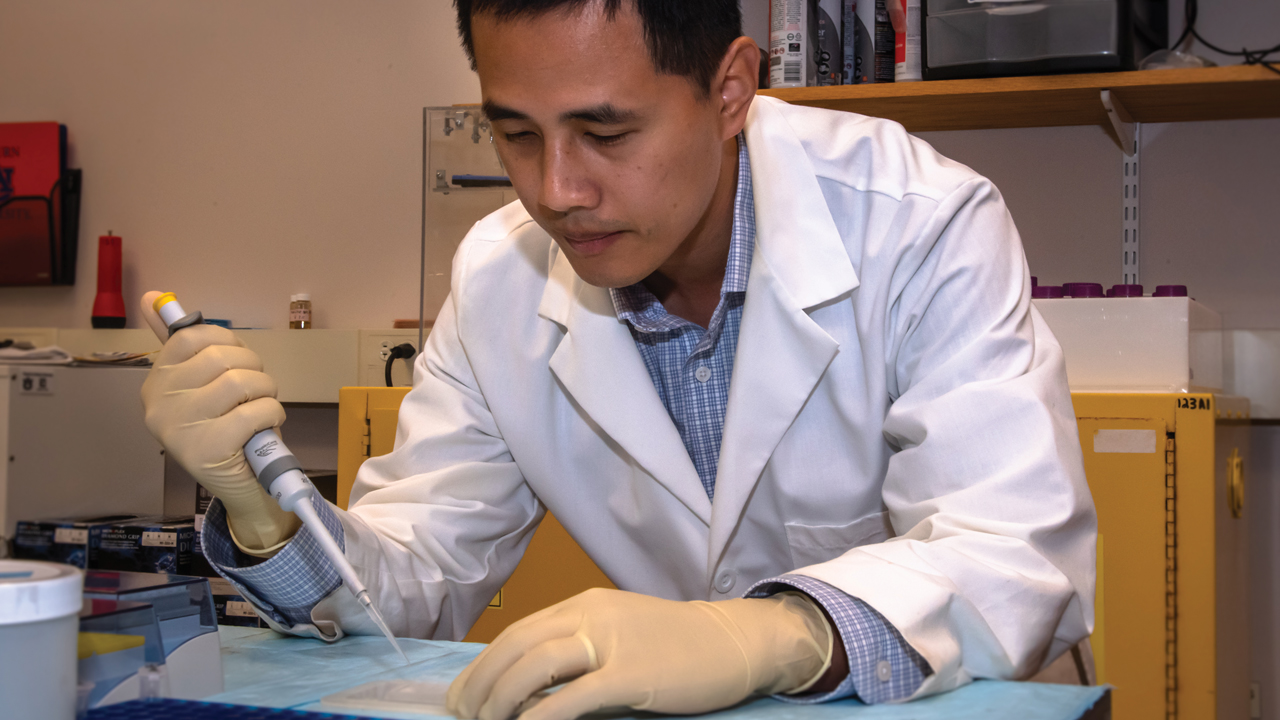Prioritizing patient care with protein research
By Jeremy Henderson

The ongoing revolution in fundamental biology, immunology and clinical discovery critically hinges on the availability of diagnostic tools capable of decentralized point-of-care measurements to provide immediate quantitative information of protein levels at the bedside or in the clinic. Enter Pengyu Chen.
The associate professor of materials engineering is developing innovative nanomaterial based optofluidic biosensing devices for rapid, accurate and sensitive detection of multiple secretory immune proteins.
An assay developed by Chen’s Advanced Nanomaterials Engineering Laboratory was successfully used under the FDA’s emergency use program to direct anti-cytokine therapy in a critically ill patient after receiving an experimental therapy for cancer. That was good enough for a $1.9 million National Institutes of Health Maximizing Investigators’ Research Award for Early Stage Investigators.
More recently, his group developed novel label-free gold-nanoparticle barcode imaging techniques for point-of-care COVID testing and rapid immune analysis in severe COVID patients.
Chen is also using a 2020 National Science Foundation Faculty Early Career Development Award for research into aptamer induced self-assembly of nano-plasmonic structures for imaging cytokine secretion from single immune cells.
“Such an approach will establish a new paradigm that permits, for the first time, direct visualization of the dynamic intercellular communication process in the immune system,” Chen said.
Through a $2.6 million NIH grant, this imaging technique has been applied to mapping the cytokine secretion signatures in CAR-T cell immune therapy to provide a better and safer treatment for leukemia.
Researchers

